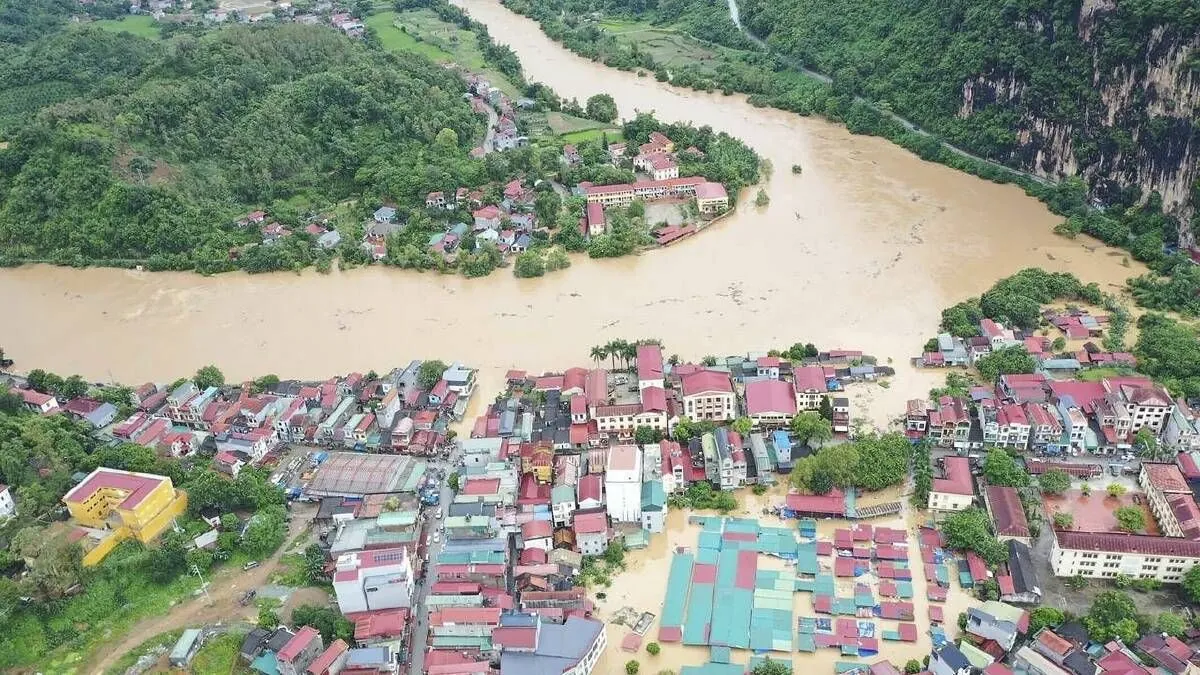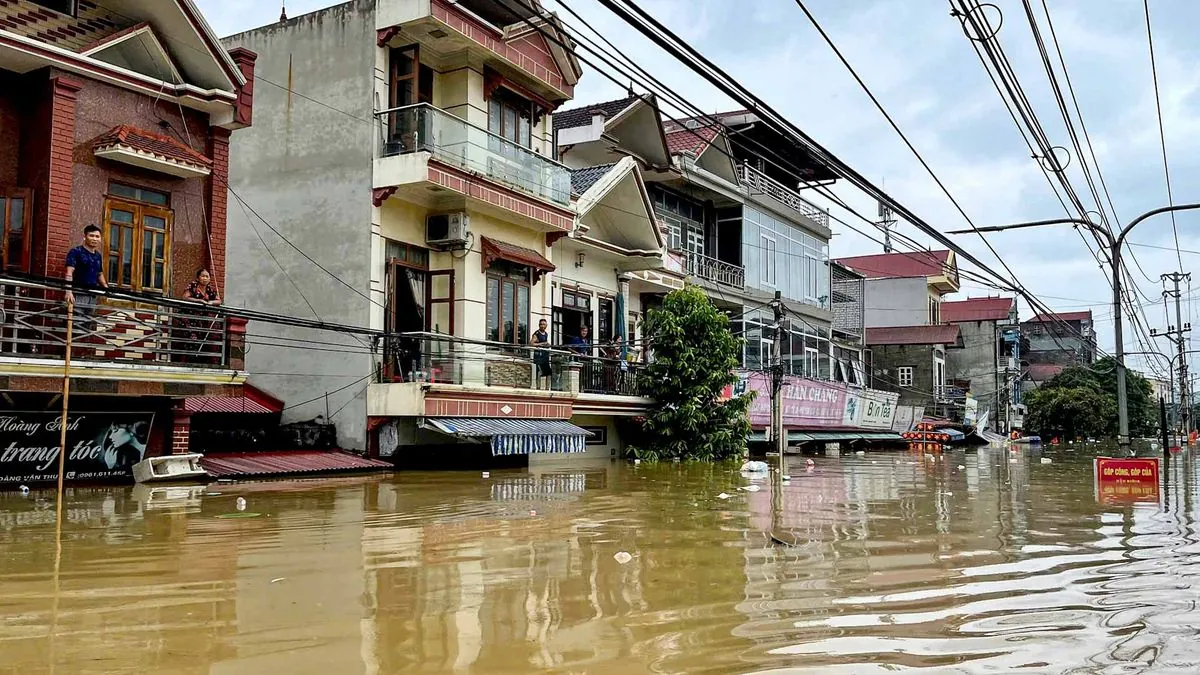Deadly Typhoon Yagi Leaves Trail of Destruction in Vietnam
Typhoon Yagi, the strongest to hit Vietnam in decades, has caused widespread devastation. The death toll has risen to 87, with 70 missing and hundreds injured due to floods and landslides.

Vietnam has been struck by a devastating natural disaster, as Typhoon Yagi unleashed its fury on the country. The powerful storm, which made landfall on Saturday, has resulted in significant loss of life and widespread destruction.
According to state media reports, the death toll has reached 87, with an additional 70 individuals unaccounted for and hundreds more sustaining injuries. The majority of fatalities were attributed to flooding and landslides triggered by the typhoon and subsequent heavy rainfall.
Typhoon Yagi has been identified as the most potent storm to impact Vietnam in recent decades. Upon landfall, it boasted wind speeds of up to 149 kilometers per hour (92 mph). While the typhoon weakened on Sunday, the persistent downpours that followed continued to pose severe risks to the affected regions.
Vietnam, with its extensive 3,260-kilometer coastline, is particularly susceptible to such natural disasters. The country typically experiences an average of 12-14 tropical storms and cyclones each year, with the typhoon season generally spanning from June to November.

The impact of Typhoon Yagi highlights the ongoing challenges faced by Vietnam in managing natural disasters. The country has implemented a national strategy for disaster prevention, response, and mitigation, which includes early warning systems and evacuation procedures. However, the severity of this event has tested these measures to their limits.
Climate change is expected to exacerbate the frequency and intensity of typhoons affecting Vietnam, potentially leading to more catastrophic events in the future. This underscores the importance of continued investment in disaster preparedness and resilience-building measures.
The aftermath of Typhoon Yagi is likely to have significant implications for Vietnam's agricultural sector, which is particularly vulnerable to such extreme weather events. The Mekong Delta, often referred to as Vietnam's rice bowl, is especially susceptible to flooding, potentially impacting food security in the region.
As recovery efforts begin, it is anticipated that international aid organizations will play a crucial role in supporting Vietnam's post-typhoon recovery. The country's disaster response typically involves coordination between military and civilian authorities, working together to provide relief and rebuild affected areas.
This catastrophic event serves as a stark reminder of the destructive power of nature and the ongoing need for robust disaster management strategies in vulnerable regions.


































